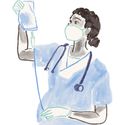
Ticog Will
Про себе
Mastering Capella FlexPath: A Strategic Approach to Academic Excellence
Capella FlexPath assessments are revolutionizing the way students approach higher education by offering a self-paced, competency-based model that allows learners to take full control of their academic journey. Unlike traditional course structures with fixed deadlines, FlexPath assessments give students the flexibility to submit assignments as they master course content. This freedom enables working professionals and busy individuals to fit education into their schedules without compromising their job or personal responsibilities. The assessments are designed to test real-world skills, not just rote memorization, making them highly relevant and practical in professional settings.
One of the key strengths of capella flexpath assessments is their focus on learning outcomes and personalized progress. Students are required to demonstrate mastery in each topic area, which means they move forward only after gaining a clear and comprehensive understanding of the subject. This competency-based model encourages deeper learning and fosters critical thinking skills. Since assessments are usually projects, essays, or case studies, students must engage in higher-order thinking, apply theories, and provide practical solutions to problems, ensuring that the knowledge gained is applicable to real-life situations in their field.
Additionally, Capella FlexPath assessments are supported by valuable resources such as feedback from course tutors and access to academic coaches. These supports help guide students throughout their journey, offering insights into how to improve their submissions and understanding. The personalized support from faculty members ensures that students receive constructive critiques, making each assessment a learning experience rather than a mere grading task. Moreover, the transparent grading rubrics clearly outline expectations, which helps students align their work with academic standards.
For students in nursing and other professional programs, FlexPath assessments present a unique opportunity to integrate academic learning with hands-on experience. Nurses, for example, can take what they’ve learned in their practice and apply it directly to their assessments, such as writing about patient outcomes, care strategies, and ethical decisions. This seamless blending of theory and practice not only enhances the quality of education but also ensures that graduates are well-equipped to make informed, evidence-based decisions in their professional roles.
MSN Writing Services play a crucial role in helping students succeed in advanced nursing programs. These services provide assistance in crafting high-quality, academically sound papers that meet the rigorous standards of graduate-level education. From formatting according to APA guidelines to editing for grammar and clarity, professional writing services can ensure that nursing students submit polished assignments. Many students in MSN programs are working full-time and juggling multiple responsibilities, so having reliable writing support can make a significant difference in managing their workload effectively.
Students who use MSN Writing Services often benefit from expert knowledge in nursing topics. The writers are familiar with common course requirements and assessment criteria in graduate nursing programs, allowing them to offer tailored support. Whether it’s a case study, a literature review, or a capstone project, these services provide guidance that ensures academic integrity while elevating the quality of content. Moreover, by collaborating with writers who understand the complexities of the nursing field, students are able to present their ideas more effectively and confidently.
In addition to improving the overall quality of submissions, MSN Writing Services also help students better understand complex topics. Many services provide not just the final paper but also detailed explanations and reference materials that students can use to enhance their own understanding. This learning-based approach allows students to absorb key concepts and theories, enabling them to discuss and defend their work when necessary. As a result, students gain both academic success and professional confidence.
MSN Writing Services are also particularly helpful in meeting tight deadlines without compromising quality. Graduate-level coursework often includes multiple assignments with short turnaround times, especially in accelerated programs like Capella’s FlexPath. By relying on professional writing help, students can maintain consistent performance across all courses, reduce stress, and focus more on practical training or clinical practice. This balance is essential in nursing programs, where both academic and hands-on skills are critical for career success.
The NURS FPX 4045 Assessment 4 is a pivotal assignment that typically revolves around creating a comprehensive care coordination plan. This assessment requires students to integrate their knowledge of patient-centered care, healthcare collaboration, and resource management. The goal is to demonstrate an understanding of how to develop an individualized plan that ensures effective communication among healthcare providers and supports optimal patient outcomes. This assessment challenges students to think critically and apply their academic knowledge to real-world scenarios.
In completing nurs fpx 4045 assessment 4, students are expected to use evidence-based practices to justify their care decisions. This means sourcing credible academic references, applying relevant nursing models, and articulating the rationale behind each aspect of the care plan. The assessment not only evaluates technical knowledge but also the ability to synthesize information and make informed choices. It reflects the advanced problem-solving skills necessary for a Master of Science in Nursing graduate.
Another important element of NURS FPX 4045 Assessment 4 is cultural competency. Students must demonstrate an understanding of how social, cultural, and economic factors influence healthcare delivery. Tailoring the care plan to meet the specific needs of diverse populations is a central part of the assignment. This encourages students to think beyond clinical symptoms and consider the holistic needs of the patient. In doing so, they build empathy and strengthen their ability to provide inclusive care.
NURS FPX 4045 Assessment 4 also emphasizes interdisciplinary collaboration. It highlights the nurse’s role as a coordinator among healthcare teams, including physicians, social workers, and therapists. Students are evaluated on how well they can map out roles, responsibilities, and communication strategies within the care team. This focus prepares students for real-world clinical environments, where team dynamics and collaborative decision-making are crucial to delivering quality patient care.
NURS FPX 4055 Assessment 2 centers around developing a risk mitigation strategy for a healthcare organization. This assessment requires students to analyze a specific healthcare issue, such as patient safety incidents or regulatory compliance challenges, and propose effective interventions. The assignment is rooted in systems thinking and encourages students to consider how different aspects of a healthcare system interact. It’s a test of both analytical and strategic planning skills.
To excel in nurs fpx 4055 assessment 2, students must demonstrate proficiency in identifying potential risks and implementing proactive solutions. This includes conducting a thorough root-cause analysis and outlining a step-by-step plan to address the underlying problems. Using data and best practices, students are expected to show how their strategy aligns with the organization’s goals and enhances patient outcomes. The ability to think systematically and communicate clearly is critical for this task.
An important part of NURS FPX 4055 Assessment 2 is stakeholder involvement. Students are encouraged to consider how different professionals and departments can contribute to risk mitigation efforts. This promotes the development of leadership skills and the ability to navigate complex organizational structures. The assessment often involves drafting communication plans or policy updates that ensure everyone in the organization understands their role in managing risk.
Furthermore, NURS FPX 4055 Assessment 2 focuses on measurable outcomes. Students must define key performance indicators (KPIs) and describe how they will evaluate the success of their risk strategy. This outcome-based approach ensures that nursing students not only design theoretical solutions but also understand the importance of tracking progress and making continuous improvements. It teaches accountability and precision—traits that are vital for nursing leaders in today’s evolving healthcare landscape.
NURS FPX 4065 Assessment 1 introduces students to the foundations of quality improvement in nursing practice. This assignment typically involves identifying a specific area in need of improvement within a healthcare setting and designing a basic plan to address it. The purpose of the assessment is to cultivate an understanding of how nurses can drive change through data, collaboration, and evidence-based strategies. It sets the stage for more complex quality improvement projects later in the program.
One of the major components of nurs fpx 4065 assessment 1 is data analysis. Students must interpret clinical or operational data to pinpoint a problem and determine its impact on patient care or system efficiency. This skill is essential for any advanced practice nurse who aims to contribute meaningfully to healthcare innovation. By learning how to work with data early in the course, students develop a critical lens for evaluating processes and outcomes.
The assessment also emphasizes the importance of setting realistic goals and aligning them with institutional objectives. Students must show that their proposed quality improvement plan supports broader organizational strategies. This might include improving patient satisfaction scores, reducing hospital readmissions, or enhancing care coordination. By connecting individual efforts to systemic goals, students begin to see their role as change agents within healthcare environments.
NURS FPX 4065 Assessment 1 fosters collaboration and communication skills. Students are often required to consider how they would involve colleagues in implementing their improvement plan. This includes outlining team roles, suggesting training programs, or developing communication tools. These collaborative elements reflect the interdisciplinary nature of modern healthcare and prepare students for leadership roles where teamwork is key to successful patient care and innovation.
 М'які меблі
М'які меблі  Крісла
Крісла  Дивани
Дивани  Пуфи
Пуфи  Розкладні дивани
Розкладні дивани  Модульні дивани
Модульні дивани  Каміння з вовни
Каміння з вовни  Офісні дивани
Офісні дивани  Крісла мішки
Крісла мішки  Кутові дивани
Кутові дивани  Освітлення
Освітлення  Бра
Бра  Люстри
Люстри  Настільні лампи
Настільні лампи  Торшери
Торшери 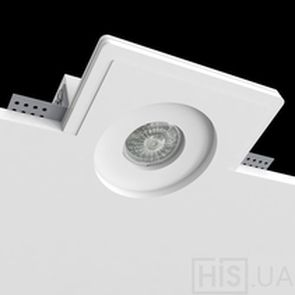 Вбудовані світильники
Вбудовані світильники 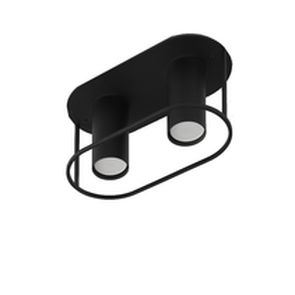 Стельові світильники
Стельові світильники 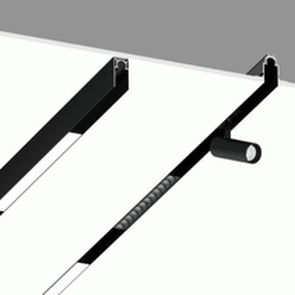 Магнітні системи
Магнітні системи  Трекові світильники
Трекові світильники  Вуличні світильники
Вуличні світильники  Світильники для ванної кімнати
Світильники для ванної кімнати 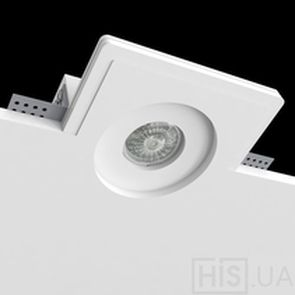 Гіпсові світильники
Гіпсові світильники  Акумуляторні лампи
Акумуляторні лампи  Акустичні світильники
Акустичні світильники  Текстильна трекова система
Текстильна трекова система  Столи
Столи  Журнальні столи
Журнальні столи  Офісні столи
Офісні столи  Кухонні столи
Кухонні столи  Столи для нарад
Столи для нарад  Розкладні столи
Розкладні столи  Круглі столи
Круглі столи  Барні столи
Барні столи  Кухонні комплекти
Кухонні комплекти  Декор
Декор  Подушки
Подушки  Свічки та підсвічники
Свічки та підсвічники  Дзеркала
Дзеркала  Пано, Живопис
Пано, Живопис  Килими
Килими  Вазони для квітів
Вазони для квітів  Біо каміни
Біо каміни  Настільний декор
Настільний декор  Настінні годинники
Настінні годинники  Вази
Вази  Аромати для дому
Аромати для дому  Дерев'яні мапи
Дерев'яні мапи  Стільці
Стільці  Табурети
Табурети  Барні стільці
Барні стільці  Лави
Лави  Стільці для дому та офісу
Стільці для дому та офісу  Офісні крісла
Офісні крісла  Пластикові стільці
Пластикові стільці  Геймерські крісла
Геймерські крісла  Поворотні стільці
Поворотні стільці  Дитячі меблі
Дитячі меблі  Дитячі ліжка
Дитячі ліжка  Дитячі стільці та крісла
Дитячі стільці та крісла  Дитячі столи
Дитячі столи  Дитячі гойдалки
Дитячі гойдалки  Шафи в дитячу кімнату
Шафи в дитячу кімнату  Освітлення в дитячу
Освітлення в дитячу  Сповивальні столики
Сповивальні столики  Комоди в дитячу кімнату
Комоди в дитячу кімнату  Ліжка
Ліжка  Зберігання
Зберігання  Тумби
Тумби  Консолі
Консолі  Вішаки
Вішаки  Стелажі
Стелажі  Комоди
Комоди  Шафи
Шафи  Полиці
Полиці  Тумби під ТБ
Тумби під ТБ  Приліжкові тумби
Приліжкові тумби  Передпокій
Передпокій  Тумби для ванної
Тумби для ванної  Гачки
Гачки  Ванна кімната
Ванна кімната  Рушникосушки
Рушникосушки  Раковини з бетону
Раковини з бетону  Аксесуари для ванної
Аксесуари для ванної  Ванни з литого каменю
Ванни з литого каменю  Шпалери
Шпалери  Вологтривкі шпалери
Вологтривкі шпалери  Вінілові шпалери
Вінілові шпалери  Текстильні шпалери
Текстильні шпалери  Шпалери з ручним розписом
Шпалери з ручним розписом  Текстиль
Текстиль  Пледи
Пледи  Постільна білизна
Постільна білизна  Стінові панелі
Стінові панелі  Звукопоглинаючі панелі
Звукопоглинаючі панелі  Килими
Килими  Матраси
Матраси  Меблі для офісу
Меблі для офісу  Комп'ютерні та офісні столи
Комп'ютерні та офісні столи  Стелажі для офісу
Стелажі для офісу  Офісне освітлення
Офісне освітлення  Вуличні меблі
Вуличні меблі  Садові стільці
Садові стільці  Садові крісла
Садові крісла  Садові столи
Садові столи  Садові барні стільці
Садові барні стільці  Акустичні перегородки
Акустичні перегородки  Кухні
Кухні  Кухонні комплекти
Кухонні комплекти  Чаши для багаття
Чаши для багаття  Інтер'єри
Інтер'єри  HoReCa
HoReCa  Інтер'єр будинку
Інтер'єр будинку  Інтер'єр квартири
Інтер'єр квартири  Суспільний інтер'єр
Суспільний інтер'єр  Інтер'єр офіса
Інтер'єр офіса  Інтер'єр пентхаусу
Інтер'єр пентхаусу  Інтер'єр магазину
Інтер'єр магазину  Смарт квартира
Смарт квартира  Фотографія
Фотографія 